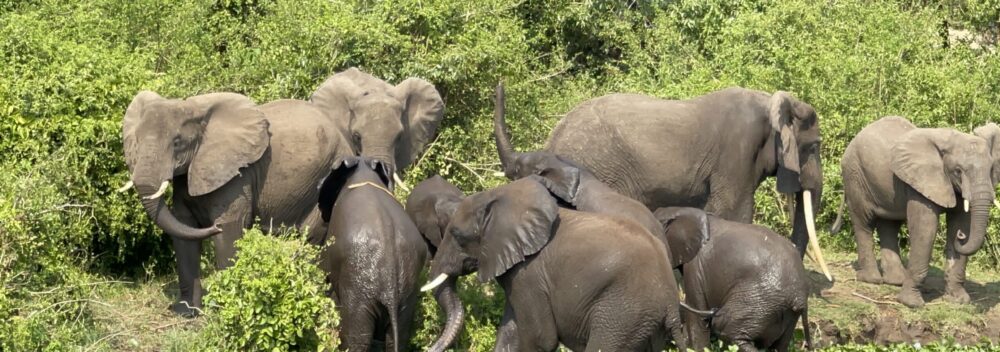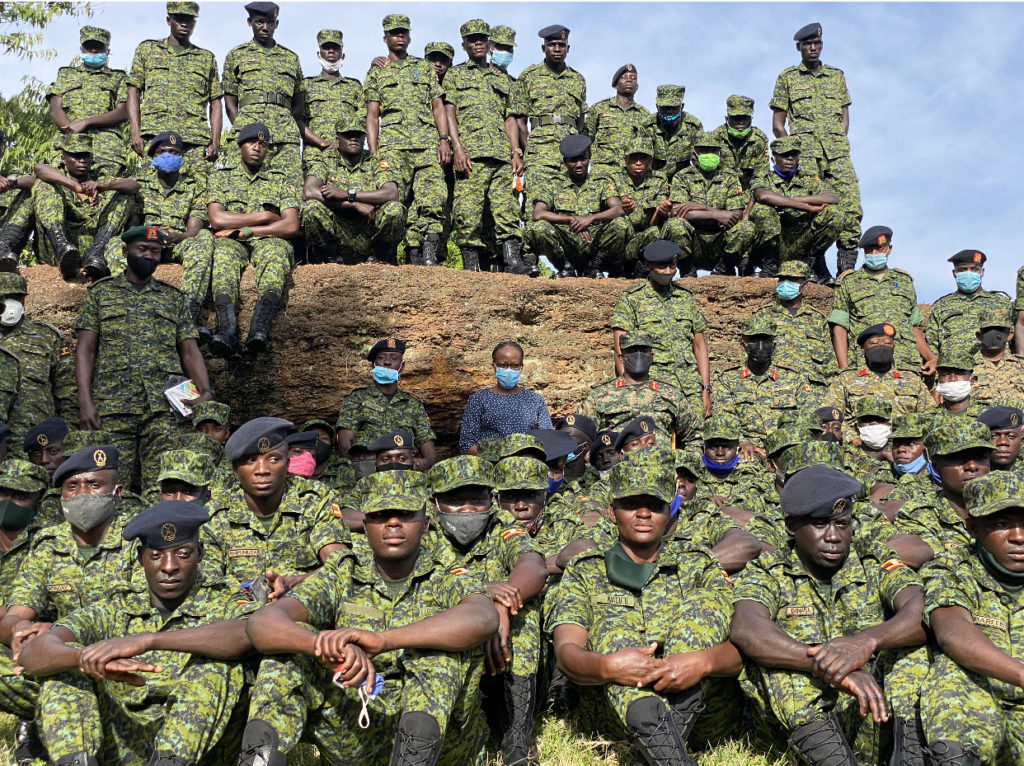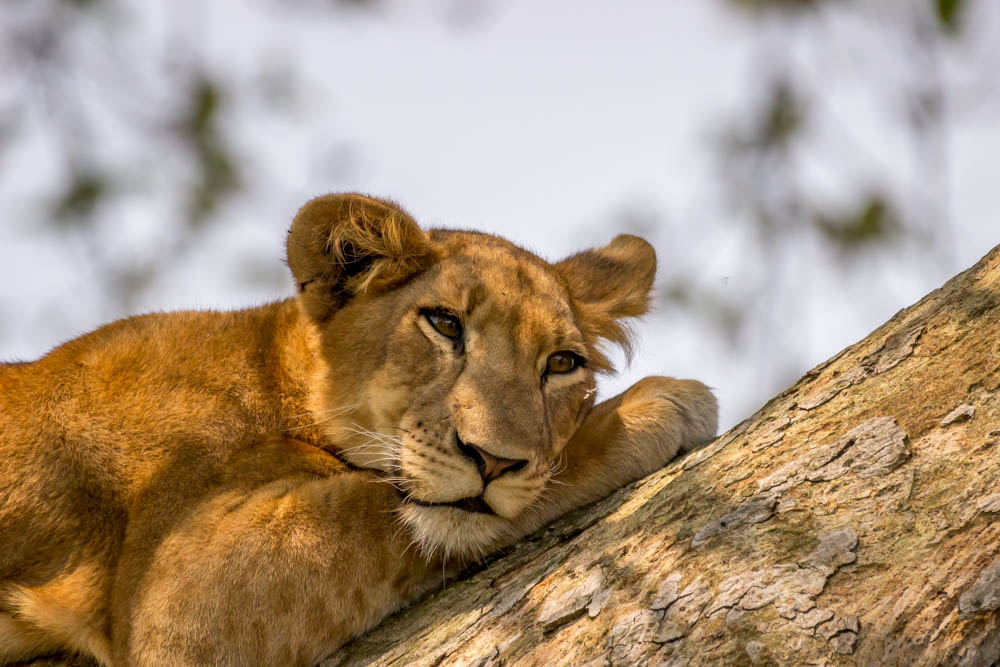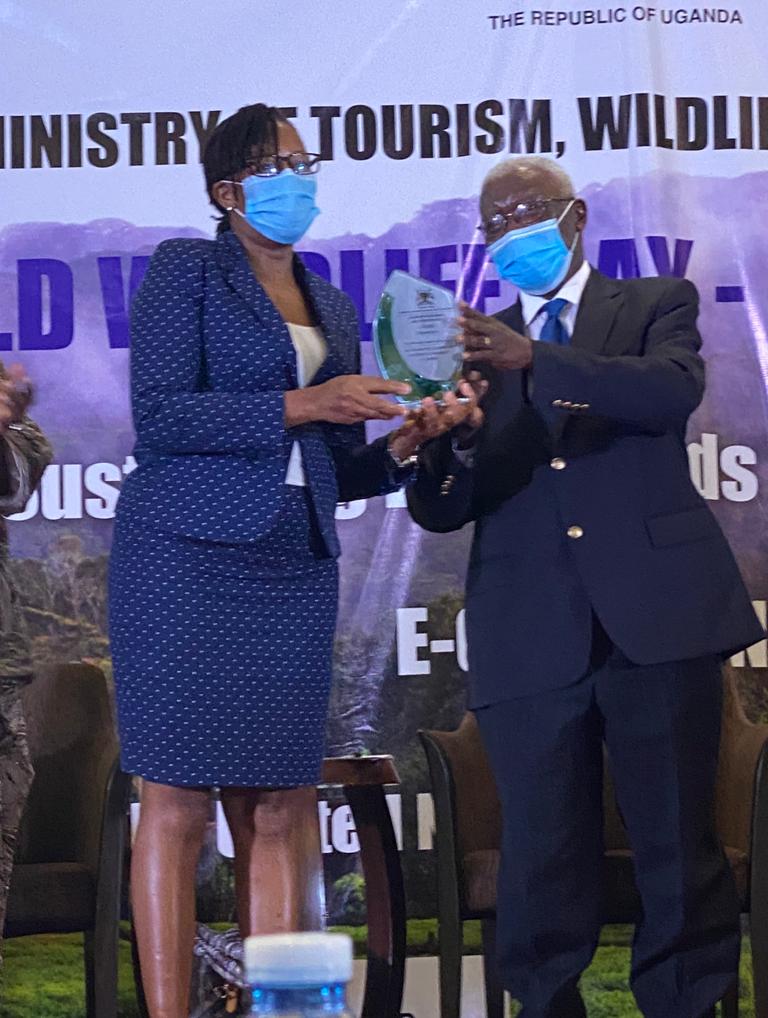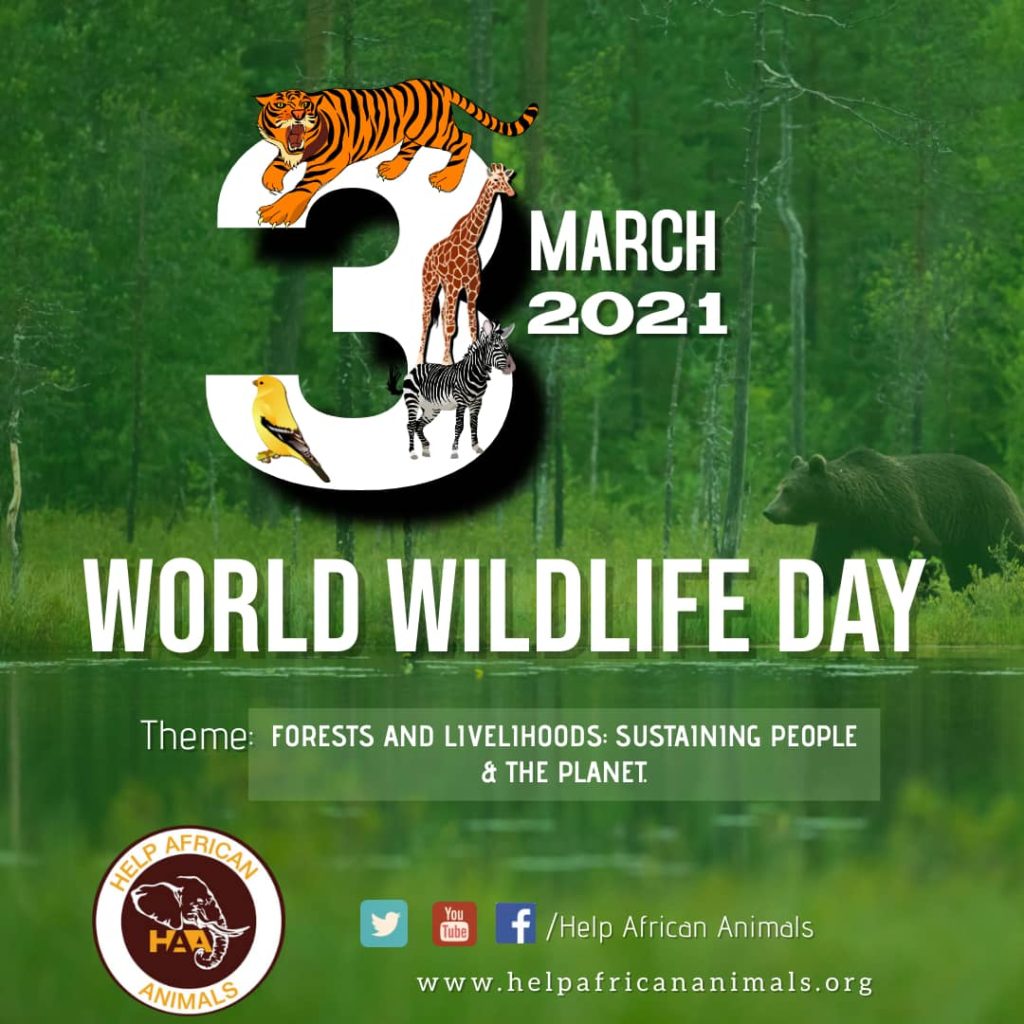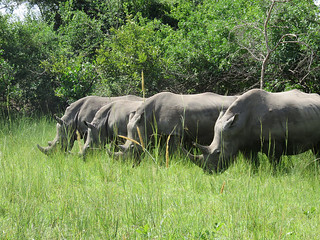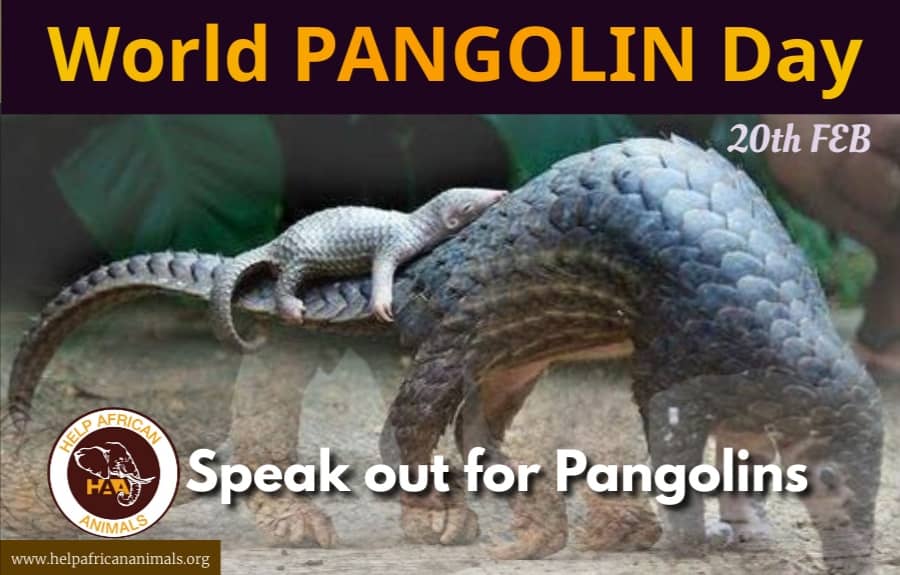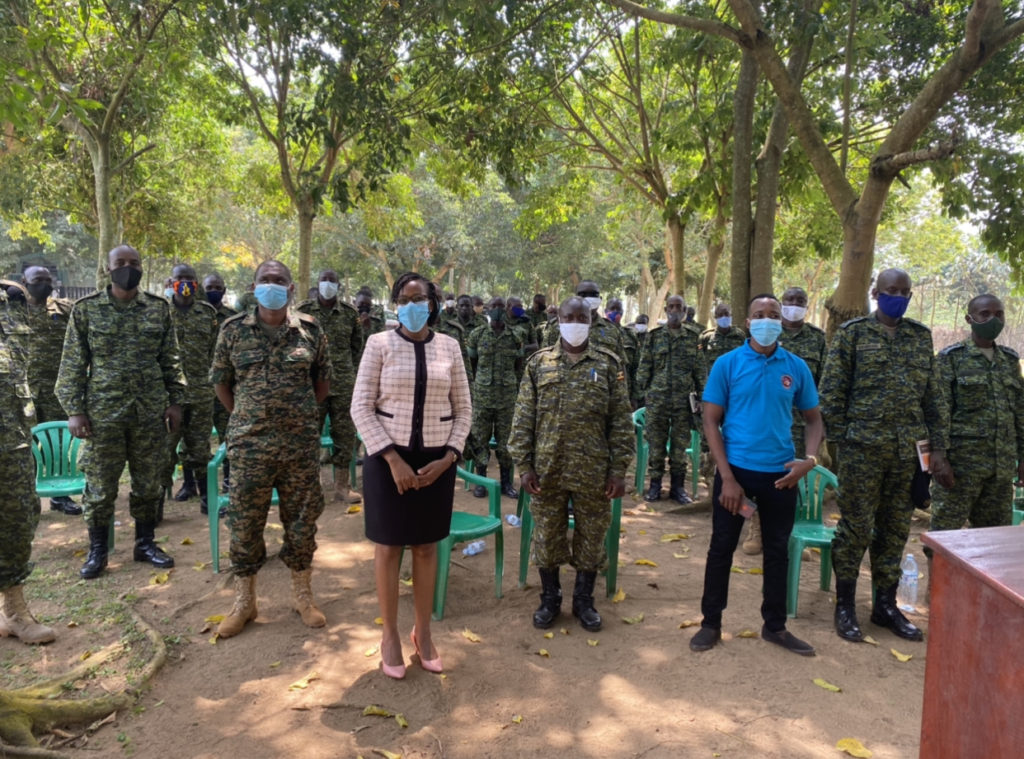Our own members attended the passing out of Marine Officers at the Uganda People’s Defence Forces (UPDF) Marine Training School located at Kalangalo today. The officers will be out on the waters of Uganda to enforce the Fish Act and Rules made under it. We are happy to work with the UPDF to protect fish in Uganda.
Category Archives: Uncategorized
Four arrested over the death of lions in Queen Elizabeth National Park
Four men have been arrested in connection with the death of the six lions in Queen Elizabeth National Park. These are Ampurire Brain aged 26 years, Tumuhire Vincent aged 49 years, Aliyo Robert aged 40 years and Miliango Davi aged 68 years.
According to the Uganda Wildlife Authority (UWA), the four were arrested last night at Kyenyabutongo village, Rusoroza parish, Kihihi sub-county, Kanungu district during a joint operation mounted by UWA, Uganda Peoples’ Defence Forces (UPDF), and police.
Upon arrest, the suspects led the security team to a location where three (3) heads of lions were found hidden in a tree while the fourth one had been buried with fifteen (15) legs of lions under the same tree. Three bottles containing a chemical commonly known as Furadan and a two little jerry can of lion fat oil were recovered in a banana plantation. Two spears, one pang, and one hunting net were found hidden in a garden at the home of one of the suspects.
The carcasses of the six lions were discovered at Ishasha sector on the evening of Friday, March 19th, 2021 upon which discovery investigations were commenced.
Help African Animals applauds UWA and all security agencies that participated in the investigations that led to the arrest of the suspects. Whereas we are well aware that the lives of the lost lions cannot be brought back, we believe that if the culprits are strongly punished, other offenders will be deterred from committing similar offenses hence leading to better protection of the lions and all other wildlife.
Uganda mourns the death of six lions
Uganda mourns the death of six lions at Queen Elizabeth National Park. According to the Uganda Wildlife Authority (UWA), the carcasses of the lions were found at Ishasha sector on the evening of March 19th, 2021 with most of their body parts missing. Eight dead vultures were also found at the scene which points to possible poisoning of the lions by unknown people. However, given the fact that some body parts of the lions were missing, UWA does not rule out illegal wildlife trafficking.
An investigation has been commenced with conservationists working with the local police to get to the root of the cause of the death of the lions.
Help African Animals condemns the illegal killing of wildlife because it impacts negatively on tourism in Uganda and threatens the survival of all species in the wild.
There have been a number of previous incidents where lions at Queen Elizabeth National Park were believed to have been poisoned. These include an incident in 2010 when five lions died and a similar incident in 2018 which led to the death of eleven lions including eight cubs.
Happy Women’s Day
Today we join the rest of the world to celebrate Women’s Day. On this special day we celebrate all women around the world that have chosen to challenge all systems that have not only oppressed, exploited and left women marginalized but also all those systems that have led to animal abuse and exploitation. Let’s continue speaking out for animals.
Founder Help African Animals recognized for her outstanding contribution to wildlife conservation
In today’s national celebrations of World Wildlife Day in Uganda, our very own Gladys Kamasanyu was given an award for her outstanding contribution to wildlife conservation in Uganda. Gladys is the founder of Help African Animals and a magistrate at the Uganda Wildlife Court, the only specialized wildlife court in Africa. She was involved in the establishment of the court. Gladys has fearlessly adjudicated over many wildlife cases involving illicit wildlife products like elephant ivory, pangolin scales, live pangolins, hippopotamus teeth and others, forestry, and fish cases. We are grateful that the government of Uganda recognizes Gladys’ contribution in the fight against wildlife crime.
Happy World Wildlife Day
We join the rest of the world to commemorate World Wildlife Day. This year’s theme emphasizes the central role of forests. It calls for the promotion of the livelihoods of communities living adjacent to forests while conserving the forests. Let us protect the forests for us and for the animals that call them home.
Uganda mourns death of a rhino
Uganda mourns death of Nandi, a 22 year old rhino. Nandi died of unknown natural causes on 28th February 2021 at the rhino sanctuary at Nakasongola. She has been referred to as the “mother of rhinos” at the sanctuary. Nandi was received at the sanctuary in 2006 from Disney Animal Kingdom. She gave birth to the first rhino at the sanctuary called Obama in 2009. Nandi has been ill for some time. In January 2021, she gave birth to a female calf called Achiru. Nandi was unfortunately, not able to feed her daughter due to illness. The calf was handed over to the Uganda Wildlife Education Center for proper care. The calf sadly died ten(10) days later. The two deaths are a big blow to the Uganda Rhino Fund and the entire country. The death reduces the total number of rhinos at the sanctuary to 33 individuals. Rest In Peace Nandi.
World Pangolin Day
We join the rest of the world to celebrate World Pangolin Day. Pangolins are the most trafficked mammal on earth. Peaceful as they are, pangolins are heartlessly murdered for their meat and scales which are on high demand in China and other Asian countries where they are without proof believed to be medicinal. Despite the protection of pangolins by the Convention on International Trade in Endangered Species of Wild Fauna and Flora (CITES) which listed them as one of the most endangered animals hence banning all forms of commercial trade in pangolins, the illegal trade has continued to take place. Over 200,000 pangolins are killed every year. Pangolins are hence being pushed into extinction. Let’s join hands to protect the pangolins.
Uganda Wildlife Authority commissions a new canine unit
Training the Fish Protection Unit Commanders
Our training for the Commanders of the Fish Protection Unit (FPU) at the Uganda Peoples Defence Forces (UPDF) Marine Training School, Kalangalo was successful. It was attended by all FPU Commanders on all water bodies of Uganda. About four years ago, the FPU was put in charge of fish protection and enforcement of the Fish Act. This came as a result of alarming levels at which fish was being depleted in waters of Uganda. The FPU among others, effects arrests, collects evidence, and tenders it to courts. The common offenses prosecuted under the Fish Act are fishing without a license, fishing using prohibited fishing gears, possession of immature fish, and transporting fish without a license. The training was mainly on evidence collection and handling. Our advocate Gladys Kamasanyu emphasized the need to not break the chain of evidence right from the time of recovery of exhibits at the scene of crime until the exhibits are tendered in court. We are privileged to contribute to the fight against fish related crimes in Uganda.
